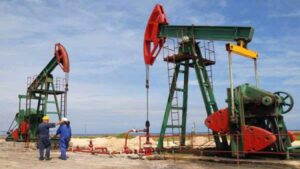Communication in times of crisis.

Reflection after the cyclone, useful for other events.

There are events in life that take you back to years ago, fortunately the mind is able to move so fast. For example, the cyclone that was threatening us and its passage through Cuban land was real, and a blackout, which at the time of this thought exceeded 30 hours, took me back to when I was a child and my father told me how the peasants learned about the proximity of one of them.
At that time there were no means of communication as there are today, nor was there Civil Defense, let alone the Internet. My father used to tell me that when there was a cyclone, the only thing that was available was the reports offered by the Cuban engineer, lieutenant commander, meteorologist and climatologist José Carlos Millás.
Also, Meteorology did not have radars or other means as it does today. It was said that Millás’ reports were accurate for the time, now the equipment allows greater precision. In the fields people lived in the dark, both for the lack of electricity and for information. The farmers were informed of the proximity of a cyclone by the Rural Guard, who in pairs, on horseback, would go through the fields giving the report and asking the locals to pass it on to the rest of the neighbors. This method was effective in the absence of other means.
We are in the 21st century, with all the advances in Science and Technology, with accumulated experience and organizations in charge of transmitting the information.
I am not going to refer to the fields of yesteryear, but to the city of Matanzas, where prior to the cyclone many neighborhoods were uninformed because they did not have electricity. It is true that telephones were set up for the people to find their way around, which can be included among the different forms of communication, but not the most effective.
It is known that the population does not have portable radios, that cell phones are discharged for such a long time without electricity. There was not, and we do not want there to be, the rural guard to inform us of the trajectory of the storm.
Not only of the storm, but also of the torment of not having electricity for more than 30 hours. We are in the 21st century, we have a recently approved Law of Social Communication, which in its Chapter VII deals with Communication in times of crisis, in whose legal body there are several paragraphs that talk about what a crisis is and the need to adopt measures to eliminate them, attenuate them or at least inform the causes and what is being done.
I believe that in the absence of information by traditional means, a loudspeaker car could have been set up to function as a radio base to communicate and alert the population. Also, the centers that have power plants could have been commissioned to become repeaters of the television or radio signals and even to disseminate local measures of interest to the community. Let us remember that information is a citizen’s right.
Written by Enrique Tirse.



